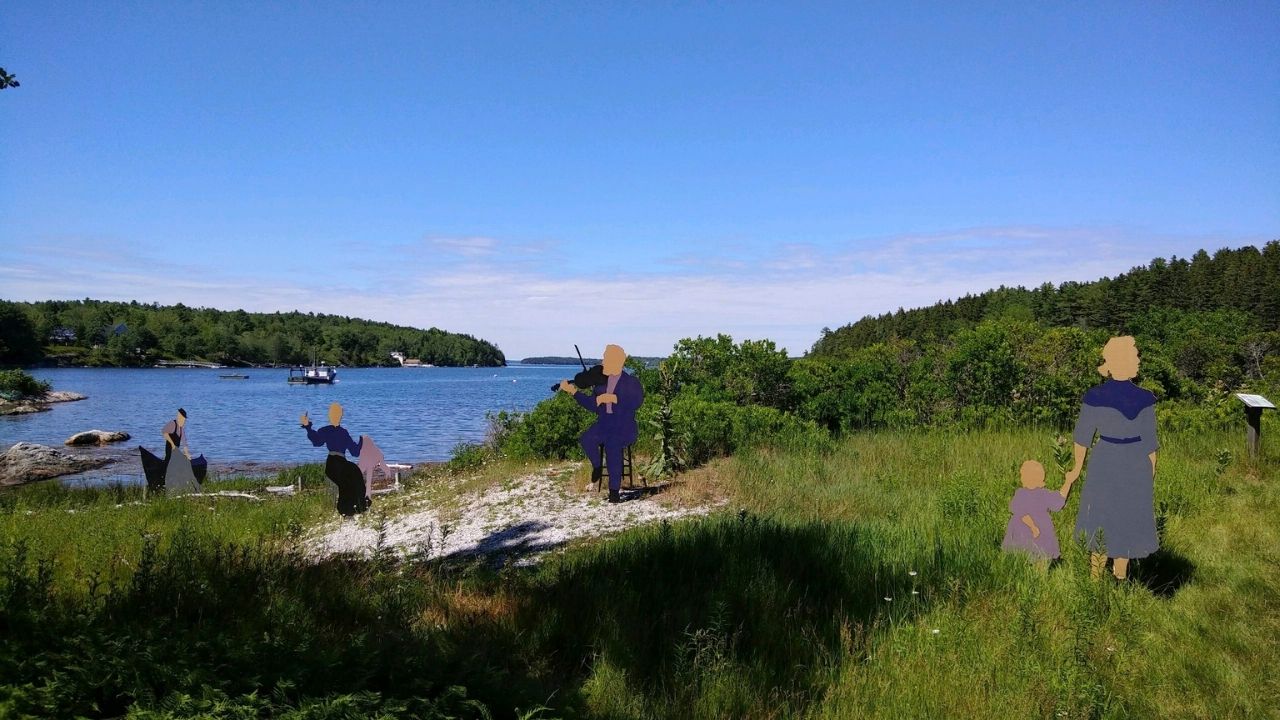Secrets Of Maine’s Malaga Island

Have you ever heard of Malaga Island in Maine? This small island holds a big story. Once home to a mixed-race community in the late 1800s, it faced a tragic eviction in 1912. The state forced residents to leave, and their homes were destroyed. Today, Malaga Island is uninhabited, but its past whispers through the trees and waves. Visitors can explore its natural beauty while reflecting on its history. The island is a reminder of resilience and the importance of remembering stories that might otherwise be forgotten. If you're curious about history and love nature, Malaga Island offers a unique experience. Whether you're kayaking around its shores or walking its trails, you'll find a place where history and nature meet.
Discovering the Hidden Gem of Malaga Island
Maine's Malaga Island is a small, mysterious place with a big history. It's not just about the scenic views; there's a story waiting to be told. If you're curious about what makes this island special, let's dive into some of its secrets.
A Glimpse into the Past
Malaga Island has a rich history that dates back to the 1800s. It was once home to a mixed-race community that faced many challenges. Understanding its past helps us appreciate its significance today.
Historic Community: The island was home to a unique community of African American, Native American, and white residents. They lived together peacefully, creating a diverse culture.
Eviction in 1912: In a sad turn of events, the state of Maine evicted the island's residents in 1912. This was due to racial prejudices and the desire to develop the land.
Archaeological Discoveries: Recent digs have uncovered artifacts from the island's past, shedding light on the daily lives of its former inhabitants.
Natural Beauty and Wildlife
Beyond its history, Malaga Island is a haven for nature lovers. Its untouched beauty and diverse wildlife make it a perfect spot for exploration.
Scenic Views: The island offers breathtaking views of the Atlantic Ocean. It's a great place for a peaceful walk or a picnic.
Bird Watching: Home to various bird species, the island is a paradise for bird watchers. Bring your binoculars and see how many you can spot.
Marine Life: The surrounding waters are teeming with marine life. Keep an eye out for seals and other sea creatures.
Visiting Malaga Island Today
If you're planning a visit, there are a few things you should know to make the most of your trip.
Access by Boat: The island is only accessible by boat. Local tours offer trips to the island, providing a guided experience.
Respecting the Land: As a place of historical significance, it's important to respect the land and its history. Stay on marked paths and leave no trace.
Educational Tours: Some tours offer educational experiences, teaching visitors about the island's history and ecology.
Malaga Island is more than just a pretty place. It's a testament to resilience and a reminder of the past. Whether you're a history buff or a nature enthusiast, there's something for everyone to appreciate.
Reflecting on Malaga Island's Legacy
Malaga Island holds a significant place in Maine's history. Its story, marked by the forced eviction of its residents in 1912, serves as a reminder of past injustices. Today, the island stands as a symbol of resilience and the importance of acknowledging historical truths. Visitors to the island can explore its natural beauty while reflecting on its complex past. Efforts to preserve and educate about Malaga's history continue, ensuring that the stories of its former residents are not forgotten. This small island offers a unique opportunity to connect with both nature and history, making it a meaningful destination for those seeking to understand the broader narrative of human rights and community. As we learn from Malaga Island, we are reminded of the need for compassion and understanding in shaping a more inclusive future.

